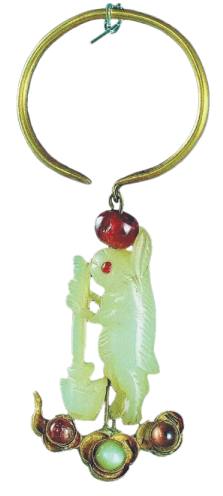Ancient poems capture the soul of Mid-Autumn Festival


Sense of nostalgia
Zhang Yinan, researcher of ancient Chinese literature at the National Library of China, said although a large number of Mid-Autumn poems are joyous, those steeped in a sense of nostalgia and loss consistently tug at the heartstrings.
"This is more or less inevitable, thanks to the way in which literature speaks to people. Exploring complex and profound emotions such as love, loss, grief and human suffering allowed people — authors and readers alike — to confront and process their own experiences," Zhang said.
In that respect, the Tang Dynasty offered plenty of opportunities for its poets, among whom Li Bai (701-762) and Du Fu (712-770) were towering figures of their times.
Li Bai wrote the following lines on an autumnal night:
One patch of moonlight envelops the city of Chang'an (the Tang capital)
From ten thousand households comes the monotonous sound of pounding
When will peace be brought to the frontier
So that my beloved will return from his long expedition?
The pounding sound was made by women who, after a long day's work, sat bathed in moonlight beating their freshly woven cloth with wooden clubs to make it softer and ready to be sewn into clothes for the coming winter.
Many born before or after Li Bai linked the moon with warfare and the separations of a woman and her soldier husband — a popular theme thanks to the efforts of Tang Dynasty rulers to defend their extended borders.
Although Li Bai's words could have been composed on any autumnal night, this work has since come to be viewed as an iconic piece for Mid-Autumn Festival, along with many of the poet's other works relating to the moon.
Du, the subject of a 2020 BBC documentary, Du Fu, China's Greatest Poet, grew up during the heydays of the Tang Dynasty in a literary household that nurtured his talent and raised him as a Confucian who valued his family and was eager to serve the court.
Zhang said: "None of that experience prepared him for the turmoil and disruption wreaked upon the once-powerful Tang by rebellions led by two of its local warlords, which erupted in 755.
"This was more or less true of Du's generation of poets, who reacted to their pain and pathos with works of emotional rawness and artistic depth. By doing so, they collectively ushered in a golden period of Chinese poetry."
- Countdown to 15th National Games: On-site warm-up entertains audience
- Eight missing after cargo ship collides with fishing vessel near Shandong
- Investing in people: a worthwhile investment
- Exhibition commemorating the epic relocation of universities opens in Fujian
- Twelve punished for scaffold collapse that killed 7 in Shandong
- Slovenian official visits whole-process people's democracy practice site of CPPCC committees





































